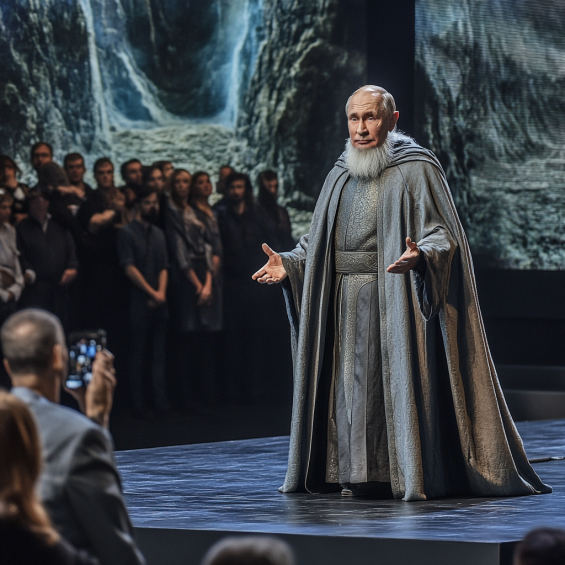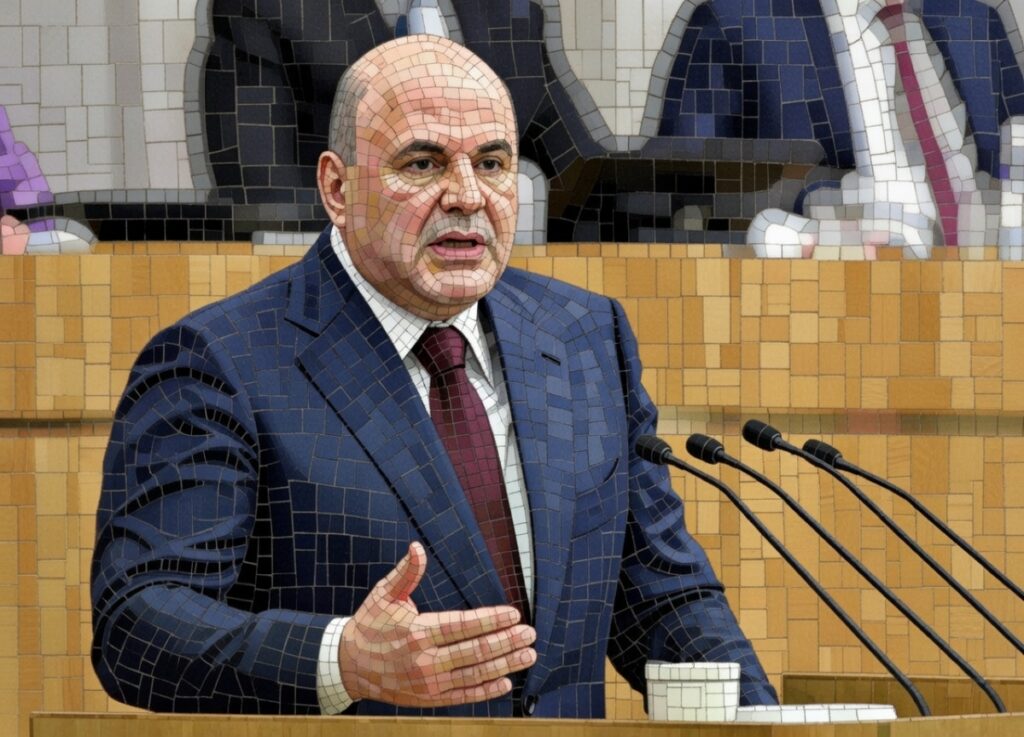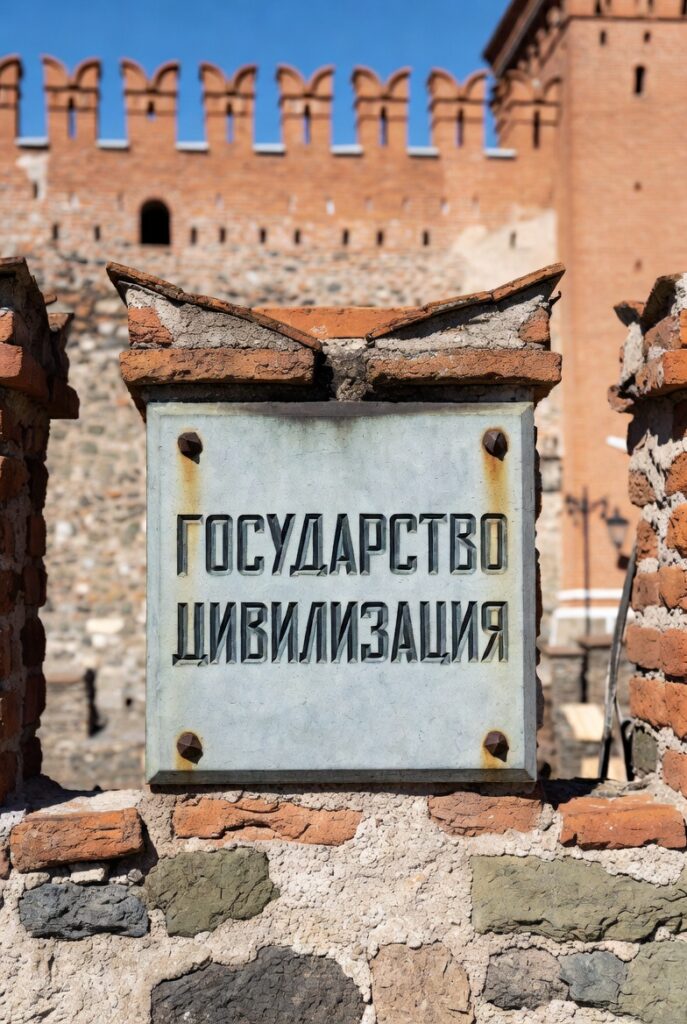Vladimir Putin addressed guests at the Eastern Economic Forum (EEF) in Vladivostok, with Malaysian Prime Minister Anwar Ibrahim as his highest-profile audience. The Russian leader’s speech followed the familiar script. At first, Putin tried not to stray from the main theme of the event — he convinced the foreign audience (mostly representatives of the so-called Global South) that the Russian economy is booming under sanctions, and that it has brilliant prospects. However, the Russian leader quickly turned to the subject of the war with Ukraine, which put the guests in an awkward position. They couldn’t disagree with Putin, but they couldn’t fully agree with him either, because most Asian and Latin American countries have diplomatic and trade relations with both the EU and the US.
Anwar Ibrahim also had to hear about the achievements not only of the Russian economy (and these achievements are often imaginary) but also of Russia’s military successes. Putin enthusiastically reported on the military’s progress in Donbass — this part of the conversation clearly excited him more than the musings on the economic development of the Far East. «It’s been a long time since we’ve enjoyed such territorial gains. The day before yesterday, for example, the „Vostok“ group captured a seven-by-five-kilometer triangle in one fell swoop. The „Center“ group is also very successful in the direction of Donetsk and Pokrovsk. There, too, our gains are no longer counted in hundreds of meters, but in square kilometers — four by five, three by five, and so on,» Putin said. The president did not directly mention the territory of the Kursk region occupied by the AFU. He only said that Ukraine «wanted to make us (the Russian authorities) nervous and fussy,» but failed at that. He even found advantages in the AFU’s offensive on Russia’s «ancestral lands»: «trained units, the enemy has weakened itself in key areas, and our troops have accelerated their offensive operations». Putin called the seizure of Donbas Russia’s «priority goal».
The verbose Putin has really revealed his priorities to the public. The seizure of new territory clearly excites him; he is eager to recite by heart the number of kilometers occupied by Russian troops on a particular day. Losses, however, including territorial losses, do not seem to matter much to him: the new territorial gains seem more attractive and important than the old ones. Putin’s feelings are clearly at odds with public opinion: judging by the government’s falling ratings and rising anxiety levels expressed by the public, Russians are more worried about the arrival of the Ukrainian army on Russian territory than they are about the advance of the Russian army into Donbas villages. However, Putin is not afraid to express his views, because, judging by his previous statements, he clearly believes that he can anticipate the public’s demands, which supposedly follow his wishes. The president’s bizarre statements could deal another blow to his ratings.
The residents of the Far East have received a new batch of fairy tales from Putin about the development of their region. The president promised them new airplanes, the construction of new enterprises and social facilities. But so far, Far Easterners are voting with their feet and leaving their regions at the first opportunity.
Regional elections: interpreting the victory
A few months ago, the Kremlin tried to show that it was not opposed to seeing elements of competition in the regional election campaigns and does not endorse the unbelievably high results of the government candidates for governor and members of local parliaments and assemblies. The deputy heads of the regions in charge of internal affairs have allegedly received clear instructions that the winners of the gubernatorial elections should get close to 60% of the votes (it is not the first year that the average result of the heads of the regions is 75−80%) and that the «United Russia» party should get a simple majority in the regional parliaments. The sincerity of such attitudes was immediately questioned. First of all, there is a municipal filter at work in gubernatorial elections, which makes it possible to exclude any undesirable and dangerous candidate from the campaign. Second, the regional authorities have long perfected a system of budgetary (targeting state employees, such as teachers, doctors, the police, etc.) and corporate mobilization. All this, combined with attempts to minimize voter turnout by not drawing unnecessary attention to the election campaign, results in an administratively dependent electorate that votes as it is told at the polling stations. Russian regional elections have long been reduced to the formula: «Unauthorized persons not admitted.» We should also note direct falsifications, rigging and other tricks, such as electronic voting. The latter has become the main form of voting in Moscow, where you have to write an application in advance to get a ballot. With this technology in place, it is practically impossible for the government candidates to get 60% in the gubernatorial elections and for the «United Russia» party to get a simple majority in the parliamentary elections (it is easily secured by victories in single-mandate districts). To achieve results that were low by the standards of recent regional campaigns, the administrative machine would have had to work against itself by artificially creating competition and forcing some state employees to vote for candidates of the systemic opposition. Such surprising events would be hard to believe, although political administrators may have their own quirks and whims: for example, the Kremlin might have done it in order to test available channels for letting off steam in the event of serious popular discontent.
However, it soon became clear that no one had planned to run such tests. There is no competition in gubernatorial elections — in the most problematic regions, even weak CPRF candidates were barred from participating (as was the case, for example, in St. Petersburg and the Altai Republic) because the authorities feared that the communist electorate would automatically vote for them. Municipal deputies and even people from other regions turned out to be the governors’ main sparring partners. Elections to regional assemblies also lacked strong competition and lively campaigning. As the elections approached, the authorities began to groom the public for high results for the government candidates. Sociological centers cooperating with the presidential administration conducted polls, according to which 70−80% of respondents in the electoral regions were confident of the victory of the government candidates. Of course, this is different from the traditional way such question is phrased: «For whom will you vote in the elections?» People really have little doubt that the incumbent heads and governors will be declared the winners, because they understand how exactly local administrations ensure such victories. These answers say nothing about the real popularity of the government candidates among the population, but they prepare the public for new gubernatorial electoral records. Pro-government pundits are already talking about referendum campaigns, the achievements of government candidates, and social cohesion after the AFU invasion of the Kursk region. These arguments have little to do with reality: the approval ratings of the president and the «United Russia» party are falling, despite the alleged «social cohesion». It turns out that the patriotic unity and rallying around the flag, praised by the authorities, is manifested only at the election of the heads of the regions distant from the Kursk region.
Attempts to legitimize overly high election results are unlikely to lead to real legitimization of the election results. The voters have long understood how the authorities ensure the percentages of their candidates and have no illusions about it, although they do not dare to protest. However, in the event of a further decline in the approval ratings, the behavior of citizens may change to protest, especially in the case of notable federal elections. There have been precedents for this in Russia’s recent history.










